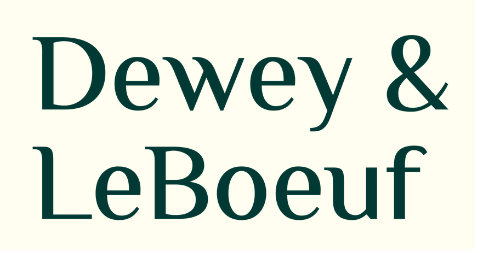Dewey LeBoeuf Law Firm in Bangladesh has consistently demonstrated its prowess in handling complex arbitration matters, especially in the realm of local arbitration. This article delves into the nuances of local arbitration, elucidating the firm’s expertise in navigating the intricacies of binding dispute resolution within the legal landscape of Bangladesh.
Understanding Local Arbitration in Bangladesh:
1. Binding Nature of Arbitration in Contracts:
- Foundational Role in Contracts:
Arbitration in Bangladesh gains its binding nature when explicitly outlined in a contract. Parties involved in a contractual relationship often opt for arbitration as the preferred method for resolving disputes. This binding agreement to arbitrate ensures that the arbitral award holds finality and is legally enforceable.
2. Finality of Arbitral Awards:
- Limited Grounds for Challenging Awards:
Once an arbitral award is rendered in an arbitration proceeding, it carries an inherent finality. Parties involved are bound by the terms stipulated in the award. However, it is essential to note that the grounds on which an arbitral award can be challenged are limited. Dewey LeBoeuf excels in understanding and applying these limitations, ensuring that the sanctity of the arbitral process is maintained.
The Anatomy of Local Arbitration Proceedings:
1. Standard Arbitral Proceedings:
- Filing Statements of Claim and Defense:
In a standard local arbitration proceeding, parties are required to file comprehensive statements of claim and defense. These documents lay the foundation for the arguments and counterarguments that will unfold during the arbitration process. Dewey LeBoeuf’s meticulous approach ensures that these statements are crafted strategically to bolster the client’s position. - Production of Witnesses and Exhibits:
The presentation of evidence is a crucial aspect of local arbitration. Dewey LeBoeuf guides its clients through the process of producing witnesses and exhibits, leveraging its extensive experience in arbitration to present a compelling case. - Closing Statements:
As the arbitration proceedings draw to a close, parties are given the opportunity to make closing statements. These statements serve as the final opportunity to persuade the arbitral tribunal. Dewey Leboeuf excels in crafting persuasive closing statements that encapsulate the client’s position with precision.
2. Local Arbitration Institutions:
- Role of BIAC:
Local arbitration in Bangladesh often involves the use of institutions such as the Bangladesh International Arbitration Centre (BIAC). Dewey Leboeuf is well-versed in navigating the rules and procedures set forth by BIAC, ensuring that its clients’ interests are protected and advanced within the institutional framework. - Ad-hoc Arbitration:
In addition to institutional arbitration, local arbitration can also be conducted on an ad-hoc basis. Dewey Leboeuf’s adaptability and in-depth understanding of both institutional and ad-hoc arbitration empower the firm to tailor its approach based on the unique needs of each case.

Dewey LeBoeuf’s Distinct Approach to Local Arbitration:
1. Legal Expertise:
- Interpreting Contractual Agreements:
Dewey LeBoeuf’s legal experts specialize in interpreting and analyzing contractual agreements to ascertain the binding nature of arbitration clauses. This foundational step ensures that the arbitration process is initiated in accordance with the terms agreed upon by the parties.
2. Procedural Acumen:
- Meticulous Case Preparation:
The firm’s procedural acumen is evident in its meticulous case preparation. From the filing of initial statements to the presentation of evidence, Dewey LeBoeuf ensures that every procedural step aligns with the client’s overarching strategy.
3. Institutional Knowledge:
- Navigating BIAC Rules:
With extensive knowledge of local arbitration institutions, particularly BIAC, Dewey Leboeuf navigates the procedural intricacies and rules set forth by these institutions. This familiarity positions the firm to effectively represent clients within the institutional framework.
4. Adaptable Strategies:
- Balancing Institutional and Ad-hoc Approaches:
Dewey LeBoeuf’s ability to seamlessly switch between institutional and ad-hoc arbitration approaches showcases its adaptability. This flexibility ensures that the firm can tailor its strategies to the specific requirements of each case, providing clients with a bespoke and effective legal representation.
Conclusion:
Dewey LeBoeuf Law Firm’s proficiency in local arbitration within the context of the Bangladesh legal landscape highlights its commitment to providing clients with comprehensive and effective dispute resolution services. By combining legal expertise, procedural acumen, institutional knowledge, and adaptable strategies, the firm stands as a formidable force in navigating the complexities of local arbitration. As arbitration continues to play a pivotal role in resolving disputes, Dewey Leboeuf remains at the forefront, offering innovative and client-centric solutions in the pursuit of justice and fair resolution.
E-mail: info@deweyleboeuf.com
Phone: +971 58 690 9684
Address: Office M 1003, Al Shmookh Business Center, UAQ FTZ, Umm Al Quwain, UAE
